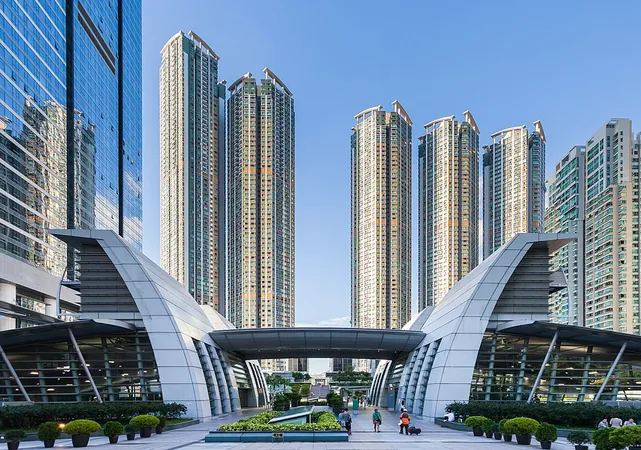
Shocking Ruling: Hong Kong Court Denies Habeas Corpus Petition from Political Dissident Kinson Cheung!
2024-09-24
Author: Ying
Hong Kong Court Rejects Habeas Corpus Petition
In a controversial decision that has sparked outrage among activists, the Hong Kong High Court rejected a habeas corpus application from Kinson Cheung, a former student leader from the University of Hong Kong (HKU). This legal move comes in the wake of an appeal where Cheung’s previously excessive sentences were deemed too harsh, yet his fight for freedom took another turn when the court ruled against his continued detention.
Cheung's Legal Arguments
Cheung's application centered on the legality of his imprisonment, which he argued should have ended following the reduced sentences granted by the appeals court. According to local media reports, including Witness HK, he referenced Rule 69 of the Prison Rules, which allows for sentence remissions based on good behavior. Cheung contended that under this provision, he could have been eligible for release by June 2024.
Counterarguments from Authorities
However, the Correctional Service Department (CSD) countered his claims, citing Rule 69(1A) of the National Security Law. CSD counsel, Mike SK Lui SC, claimed that any remission must consider whether releasing Cheung would pose a risk to national security. This provision is a direct result of the controversial Article 23 National Security Legislation, which has previously been used to deny remission for other prisoners, such as Ma Chun Man, who was convicted of serious offenses under the 2020 National Security Law.
Judicial Proceedings
Cheung's lawyer, Robert Pang SC, argued against the broad application of what constitutes an “offense endangering national security,” asserting that Cheung's detention was illegal and requesting bail as a form of interim relief. In response to these claims, Lui criticized Cheung's approach, arguing that he should have pursued a judicial appeal rather than a writ of habeas corpus.
Court's Decision
Initially, Judge Anna Lai appeared to lean in favor of Cheung’s arguments. However, the narrative shifted when Lui presented evidence from the Committee for Safeguarding National Security, which classified Cheung's actions of 'incitement to wound with intent' as a matter of national security. This reference was pivotal; the CSD Commissioner pointed out that Cheung had not shown sufficient remorse for his actions, alleging he exhibited sympathy toward individuals accused of serious offenses.
Implications of the Ruling
In a striking turn of events, Judge Lai ultimately denied Cheung’s application, underscoring that the court lacked the authority to challenge the committee’s decisions, which are deemed binding. This ruling comes with significant implications, raising concerns over judicial independence and the scope of the National Security Law’s reach.
Concerns Over Civil Liberties
The case has ignited further dialogue around civil liberties in Hong Kong, particularly regarding how national security measures may be utilized to suppress dissent. Observers note that this ruling could impact numerous activists and individuals awaiting similar fates under Hong Kong’s politically charged atmosphere.
Community Reactions
As the implications of this ruling reverberate throughout the community, many are left wondering: Is this a troubling precedent for human rights in Hong Kong? The response from local and international watchdogs will be crucial as we stand on the brink of a possible backlash against such judicial decisions. Stay tuned for more updates on this developing story!






 Brasil (PT)
Brasil (PT)
 Canada (EN)
Canada (EN)
 Chile (ES)
Chile (ES)
 España (ES)
España (ES)
 France (FR)
France (FR)
 Hong Kong (EN)
Hong Kong (EN)
 Italia (IT)
Italia (IT)
 日本 (JA)
日本 (JA)
 Magyarország (HU)
Magyarország (HU)
 Norge (NO)
Norge (NO)
 Polska (PL)
Polska (PL)
 Schweiz (DE)
Schweiz (DE)
 Singapore (EN)
Singapore (EN)
 Sverige (SV)
Sverige (SV)
 Suomi (FI)
Suomi (FI)
 Türkiye (TR)
Türkiye (TR)